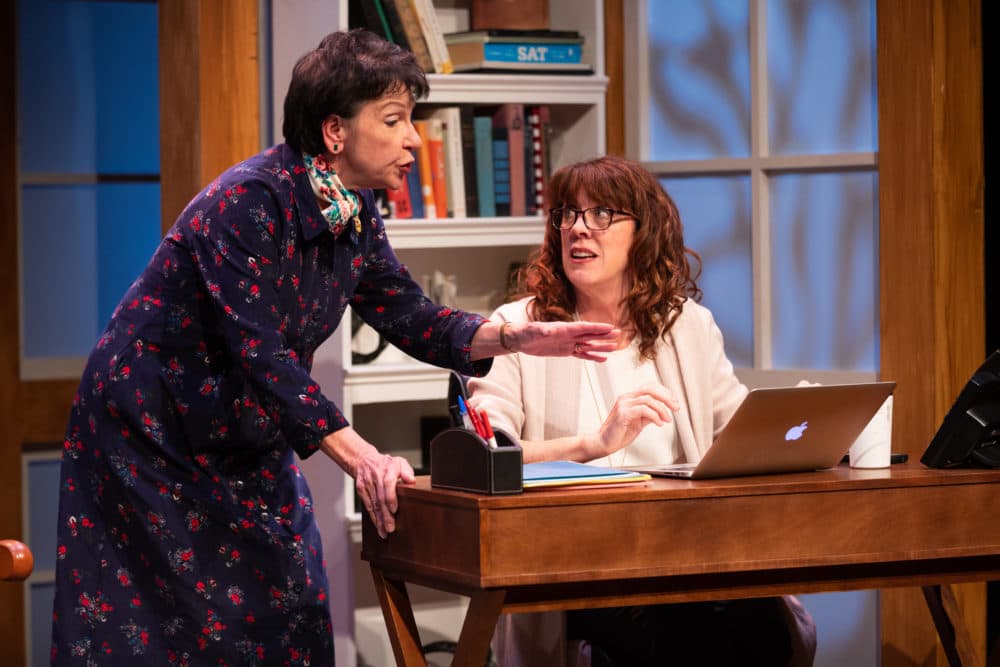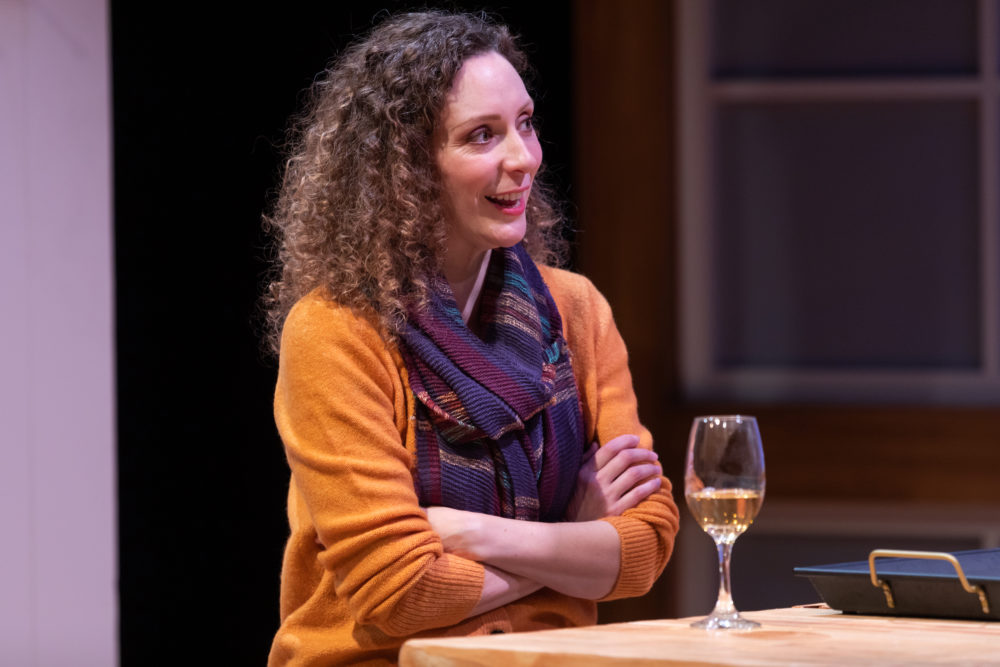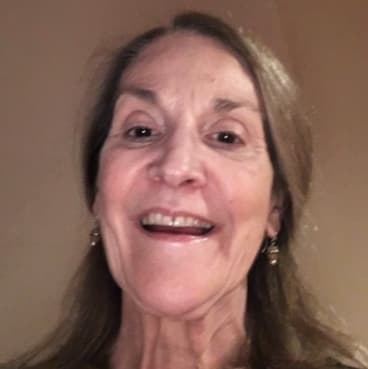Advertisement
Review
At SpeakEasy, 'Admissions' Roasts White Liberals Over The Coals Of A Hot Topic

White people, hold on to your hats. I think mine may have just blown off, buoyed by the torrential, abrasive wind of Joshua Harmon’s “Admissions,” which is being given a crackling yet rueful area premiere by SpeakEasy Stage Company (at the Calderwood Pavilion through Nov. 30).
“Admissions” is a play with a double-edged title — one that applies to college admissions, a topic that, between the suit against Harvard for alleged discrimination against Asian applicants and the Varsity Blues scandal — has been very much in the news. But the play’s terse moniker also references confessions, however inadvertent, by performatively woke, well-meaning Caucasians slapped in the face by their own hypocrisy. Harmon’s comedy, which won the 2018 Drama Desk Award for best play, is also wildly funny — which is both its strength and, arguably, a weakness.
The first thing you notice about “Admissions,” which addresses issues of race, is that there are no people of color in it — at least none who are on stage. Harmon, 35, writes what he knows — both here and in the flamboyantly corrosive “Bad Jews,” which SpeakEasy produced in 2014. And presumably, what he knows stems from a privileged Westchester upbringing among mostly white folks, many of whom were unabashed liberals — until their egalitarian principles stood to cost them something. Or worse: stood to cost their children something. (One thing Harmon gets absolutely right is the irrationality that takes over well-meaning parents when it’s not they, but their kids, who are denied.)

In the case of “Admissions,” Charlie Luther Mason (whose middle name honors Dr. King) is the high-achieving son of white parents, a WASP and a secular Jew, who are not just pro-forma liberals but evangelical about creating opportunities for young people of color. Father Bill Mason is Head of School at Hillcrest, “a second-tier, on-the-cusp-of-being-a-first-tier” New Hampshire prep school where his wife, Sherri Rosen-Mason, is Head of Admissions. In that capacity she has worked tirelessly to increase diversity among the student body. In the course of 15 years, she has raised the number of non-white matriculants from 6 to 18 percent, in the process becoming — as her husband puts it after their own son is denied early admission to Yale — “an award-winning rejector of white boys.”
We learn about the deferment only after a scene in which Sherri smoothly berates an older woman who works in the development office for not including enough photos of recognizably non-white students in the school catalog and a coffee klatch (well, a wine klatch) in which Sherri and pal Ginnie, whose son Perry is Charlie’s best friend, await the news from Yale, to which both boys have applied.
When Perry, whose mother is white but whose father (an English teacher at the school) is biracial, gets in while Charlie is deferred, all hell breaks loose. And where it breaks loose from is Charlie’s mouth, in a virtuosic if poisonous screed that mingles his frustration with a horrifying but not utterly illogical denunciation of race and racism as flimsy constructs. Who, he wants to know, gets to decide who can play the race card?

I will not spoil this 15-minute-long, addled crescendo of a diatribe by quoting from it, except to say that it culminates in “Sieg Heil!” (It does bear mentioning that the play is set during the 2015-16 academic year and thus predates the more recent resurgence of neo-Nazism in our nation.) Suffice it to say that the speech is shocking, anguished, unhinged and goes against everything Charlie has been raised by his smugly liberal parents and his school to believe. (In its wake, Dad Bill calls him a “spoiled little over-privileged brat.”)
The tirade is also so hilariously over-the-top that it may defy Harmon’s stated goal (in an interview printed in the program) “to hold up a mirror to privilege and white liberalism, while remaining very conscious of the fact that this is just one narrow slice of a much larger conversation.” Charlie’s renunciation of his heretofore unruffled liberal assumptions is so extreme — as is his later counter-corrective — that some white audience members may not so much see themselves in the mirror as glance off to the side at their far crazier white neighbors.
Still, the play makes its point that it’s far easier to invite new voices to the table of privilege if you don’t have to give up your own seat there. As Charlie observes before he goes completely off the rails: “You can’t just keep pulling up chairs. There isn’t unlimited room. That’s like, not how tables work.”
But the play is not just about Charlie, however touchingly if outrageously he is portrayed by BU theater student Nathan Malin. After all, Charlie is 17, unformed and impressionable. Harmon’s real subject is the skin-deepness of the adults’ principles, as the authoritarian Bill and especially the helicoptering Sherri must face tough truths about themselves and what they put first when the political gets personal.

That is the tenuous thing about “Admissions,” which director Paul Daigneault clearly understands. While the satire is flagrant, the characters are not. Although all are run up the comedic flagpole (including aging administrator Roberta, who claims not to “see” race), they are not despicable people. And they pay dearly for what they hadn’t hoped to learn about themselves: in their relationships, in their perceived self-image. And this gives the work a rueful quality that wars a bit with the harsh bravura of its satire. Hence Dewey Dellay’s effectively pensive sound design and the relative naturalness of the performances.
Right from the get-go, Maureen Keiller brings a silky condescension to Sherri as she bullies Roberta (an aptly passive-aggressive Cheryl McMahon) over the catalog. But Keiller also conveys the sadness it causes Sherri to have to bully — and know that she will — on her son’s behalf. Michael Kaye’s stiffer, blunter Bill, attacking his son with a mixture of male aggression and self-centered smolder, is funnier but less affecting.
Lastly, the excellent Marianna Bassham brings a warm tone and a sharp edge to Ginnie, a character whose actual involvement with people of color has taught her that, when it comes to white guilt at war with white privilege, it’s a coin toss.
